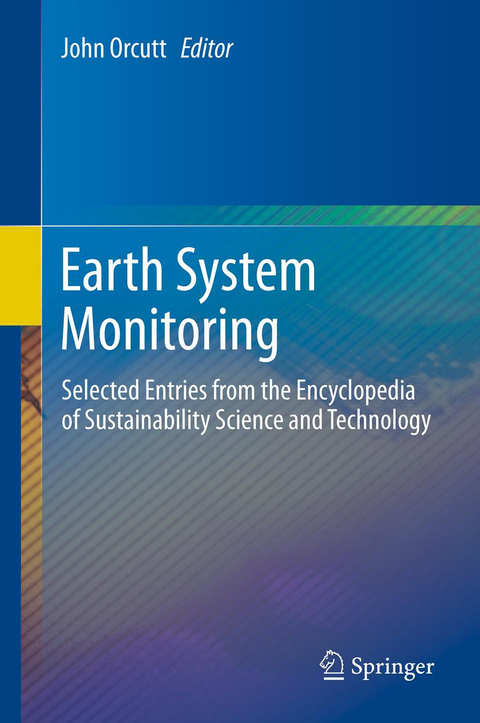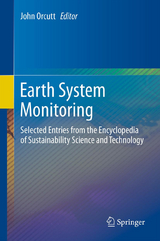Earth System Monitoring
Springer-Verlag New York Inc.
978-1-4614-5683-4 (ISBN)
Modern Earth System Monitoring represents a fundamental change in the way scientists study the Earth System. In Oceanography, for the past two centuries, ships have provided the platforms for observing. Expeditions on the continents and Earth’s poles are land-based analogues. Fundamental understanding of current systems, climate, natural hazards, and ecosystems has been greatly advanced. While these approaches have been remarkably successful, the need to establish measurements over time can only be made using Earth observations and observatories with exacting standards and continuous data. The 19 peer-reviewed contributions in this volume provide early insights into this emerging view of Earth in both space and time in which change is a critical component of our growing understanding.
1. Earth System Monitoring, Introduction.- 2. Airborne and Space-borne Remote Sensing of Cryosphere.- 3. Aircraft and Space Atmospheric Measurements Using Differential Absorption Lidar (DIAL).- 4. Contemporary Sea Level Variations, Observations and Causes.- 5. Coral Reef Ecosystems.- 6. Earth System Environmental Literacy.- 7. Gravity Recovery and Climate Experiment (GRACE): Detection of Ice Mass Loss, Terrestrial Mass Changes, and Ocean Mass Gains.- 8. Heat Content and Temperature of the Ocean.- 9. Hurricane and Monsoon Tracking with Driftsondes.- 10. Large-Scale Ocean Circulation: Deep Circulation and Meridional Overturning.- 11. Long-Term Ecological Research Network.- 12. Ocean Acidification.- 13. Ocean Evaporation and Precipitation.- 14. Ocean Observatories and Information: Building a Global Ocean Observing Network.- 15. Oil Spill Remote Sensing.- 16. Remote Sensing Applications to Ocean and Human Health.- 17. Remote Sensing of Natural Disasters.- 18. Remote Sensing of Ocean Color.- 19. Volcanoes, Observations and Impact.- Index.
| Zusatzinfo | VI, 518 p. |
|---|---|
| Verlagsort | New York, NY |
| Sprache | englisch |
| Maße | 155 x 235 mm |
| Themenwelt | Naturwissenschaften ► Biologie ► Ökologie / Naturschutz |
| Naturwissenschaften ► Geowissenschaften ► Geografie / Kartografie | |
| Naturwissenschaften ► Geowissenschaften ► Geologie | |
| Naturwissenschaften ► Geowissenschaften ► Geophysik | |
| Naturwissenschaften ► Physik / Astronomie ► Angewandte Physik | |
| Technik ► Umwelttechnik / Biotechnologie | |
| Schlagworte | Airborne Remote Sensing • Aircraft Atmospheric Measurements • Contemporary Sea Level Variations • Coral Reef Ecosystems • DIAL • Driftsondes • Earth System Environmental Literacy • Earth System Monitoring • Earth System Monitoring Sustainability • Encyclopedia of Sustainability Science and Technology • Grace • Hurricane Tracking • Monsoon Tracking • Ocean Acidification • Ocean Circulation • Ocean Heat Content • Ocean Temperature • Oil Spill Remote Sensing • Remote Sensing • Space Atmospheric Measurements • Volcanoes |
| ISBN-10 | 1-4614-5683-5 / 1461456835 |
| ISBN-13 | 978-1-4614-5683-4 / 9781461456834 |
| Zustand | Neuware |
| Haben Sie eine Frage zum Produkt? |
aus dem Bereich




